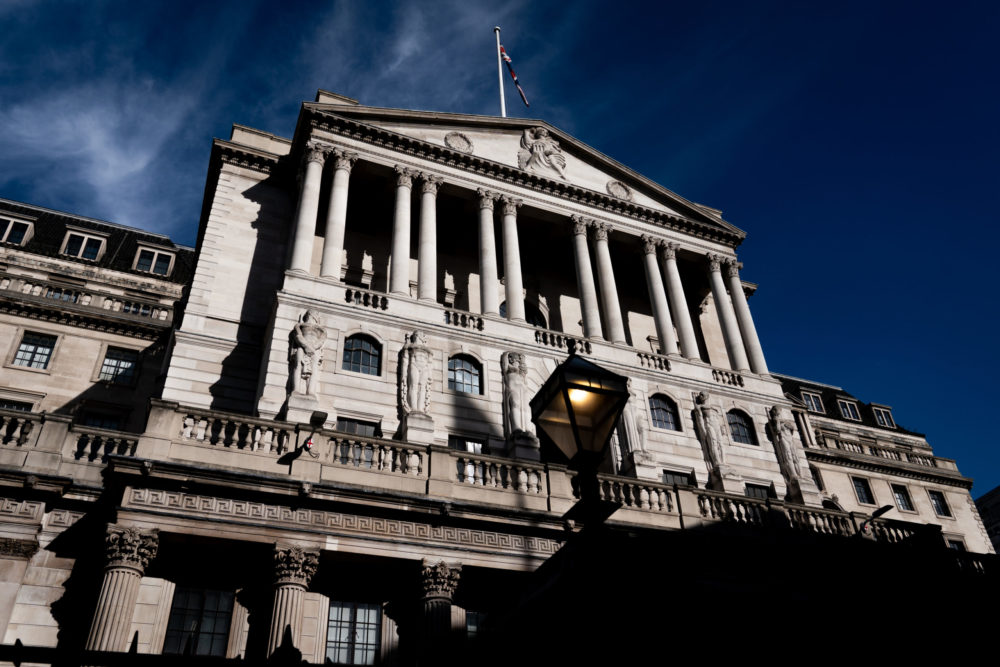UK economy in ‘horrible’ bind with no room for tax cuts as recession looms – IFS

The UK economy is in a “horrible fiscal bind” as it heads for recession and with no room to cut taxes or increase public spending amid mounting political pressure on the Chancellor to do so, according to a report.
The Institute for Fiscal Studies (IFS) warned in its latest Green Budget that Britain will slump into a “moderate” recession in the first half of 2024 as borrowing costs stay elevated.
The report, funded by the Nuffield Foundation and using economic forecasting by Citi, analysed the challenges facing the Chancellor ahead of his autumn statement.
The IFS said there was little toom for tax cuts “any time soon”, based on the state of the nation’s public finances.
Taxes in the UK are heading to their highest level and tight public spending plans mean the Government is set to rake in the biggest surplus – meaning revenues above non-interest spending – in decades.
Government borrowing is also set to be around £20 billion lower this year than the Office for Budget Responsibility (OBR) predicted in March.
But debt levels have soared as borrowing costs have gone up, and the inflation rate remains above target.
The UK is also expected to fall into a recession at the start of 2024 that lasts for nine months, according to analysis by Citi.
A recession is defined as two or more quarters of negative economic growth.
It forecasts gross domestic product (GDP) to fall by 0.7% over 2024 due to weak corporate margins and higher interest rates.
“We are in a horrible fiscal bind,” said Paul Johnson, the IFS’s director.
“The price of our high levels of indebtedness, failure to stimulate growth, and high borrowing costs is likely to be a protracted period of high taxes and tight spending.”
Public spending
But the Government could come under pressure to increase public spending by more than planned, the IFS cautioned.
Beyond March 2025, there are likely to be real-terms cuts to the day-to-day budgets of many governmental departments and falling spending on investment in public services, the report said.
It comes despite growing pressure to improve services such as the NHS and commitments to spending in some areas such as defence and childcare.
In better news for the Government, the UK’s Consumer Prices Index (CPI) inflation is expected to drop to around 4.3% by the end of the year – meaning the Prime Minister would meet his pledge to halve inflation by the end of December.
And interest rates are forecast to remain above 5% until mid-2024, when the Bank of England could begin steadily cutting rates.
But the Bank faces its own challenge of bringing down inflation while avoiding a recession worsened by squeezed budgets, according to the IFS.
It said: “The Monetary Policy Committee (MPC) may want to wait for firm evidence of disinflation before it considers cutting rates.
“But by that point it might be too late and the result could be a deep recession.”
Benjamin Nabarro, chief UK economist at Citi, said: “With activity already beginning to slow, and the labour market also showing tentative signs of loosening, most of these effects still lie ahead.”
He added: “The lesson of the 1970s was to hold rates tight until you can see the ‘whites in the eyes’ of disinflation. In a highly financialised, debt-driven economy, that may turn out to be only half the story.”
The Government said it was on track to get debt falling and it would not be deterred by changes to economic growth, inflation and interest rates.
A spokesman for the Treasury said: “After we stepped in to support families and businesses during the pandemic, Putin’s invasion pushed up inflation and interest rates – meaning we spent twice as much on servicing our debt last year as the year before.
“To secure our public finances we must stick to our plan which is on track to halve inflation, reduce public sector waste and get debt falling.”
Mr Hunt is due to present the 2023 autumn statement to Parliament on November 22, alongside an economic and fiscal forecast put together by the OBR.
Support our Nation today
For the price of a cup of coffee a month you can help us create an independent, not-for-profit, national news service for the people of Wales, by the people of Wales.







Nothing to blame other than the last 13 years of government and a bit of the previous Labour regime on top. Austerity and other cuts were meant to reduce the UK’s cost base but instead the London regime have gone on a huge spending spree on vanity projects, failed to manage their allocation of emergency funds in the Covid crisis and often thrown money at problems where they had no clue what they were setting out to achieve other than be seen to be “doing something”. No evidence of real “Leadership” or “management”.
Can anyone name one economic benefit that we have had from this Conservative government or Brexit?
13 years. And people will want to vote them back in for another 5. The Government that removed us from a massive trading partner, removed travel rights, removing safety and legal cover, imposed financial harm on a nation, that was before the Truss effect, continues to look after the money that keeps them there and not the nation that live here.
Yeah, life is rosey under the CONservatives.
But 20mph eh. grrrrr. those limits…..